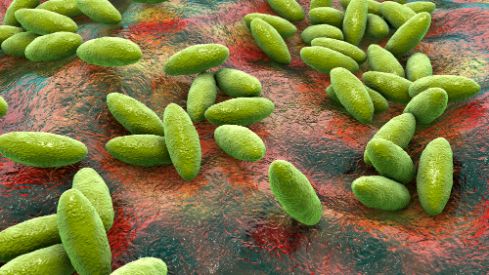However, it can also cause a range of infections. These infections may include meningitis, bacteremia, pneumonia, and urinary tract infection. Some of these infections can be severe, and others can be mild. Regardless of the type of infection, treatment is usually focused on staying hydrated and resting.
There are hundreds of strains of E. coli, and a number of these strains can cause serious disease. For instance, Shiga toxin-producing E. coli (STEC) is one of the most common types of infectious disease caused by these bacteria. A small proportion of patients who have this infection develop hemolytic uremic syndrome (HUS). This condition can lead to kidney failure. People who have HUS can be treated by blood transfusions or dialysis.
Depending on the severity of the infection, symptoms can last for up to two weeks. Symptoms can include fever, abdominal pain, vomiting, and diarrhea. If these symptoms do not disappear after a few days, contact a health care provider. The doctor will be able to determine the best course of treatment.
Most people recover from the infection after five to ten days. During this time, the body is able to eliminate the toxin. Antibiotics are not often used in this condition, and they can increase the risk of a serious complication. You may need to be given IV fluids to help you stay hydrated.

Children are very susceptible to E. coli infections, and it is easy for them to become infected. They can get the infection through contact with raw meat, unwashed vegetables and fruits, or water that has been contaminated with feces. Keeping raw and cooked foods separate is a good way to prevent the spread of infection.
People with this infection should drink plenty of fluids, because the toxin can damage the lining of the small intestine. The toxin causes vomiting and diarrhea. Diarrhea is a way that the body expels the bacteria. Without enough fluids, you can lose electrolytes, and that can result in fatigue and dehydration.
If you or your child develops symptoms after contact with raw meat or contaminated water, you should contact a physician. Your physician will be able to determine the best way to treat the infection.
The Centers for Disease Control estimates that 265,000 STEC infections are reported in the United States each year. Those with severe cases are treated in the hospital. Otherwise, symptoms can go away on their own.
Because the bacteria is present in the intestines of healthy individuals, most people can easily recover from the infection. But it is important to wash your hands regularly and avoid putting raw meat and other uncooked food on the same plate as prepared food. Also, keep your children away from the nursery or school for 48 hours after vomiting or diarrhea.
To avoid a bacterial pregnancy, pregnant women and women who are nursing should avoid unpasteurized dairy products. Likewise, raw fruits and vegetables should be washed with hot, soapy water.








